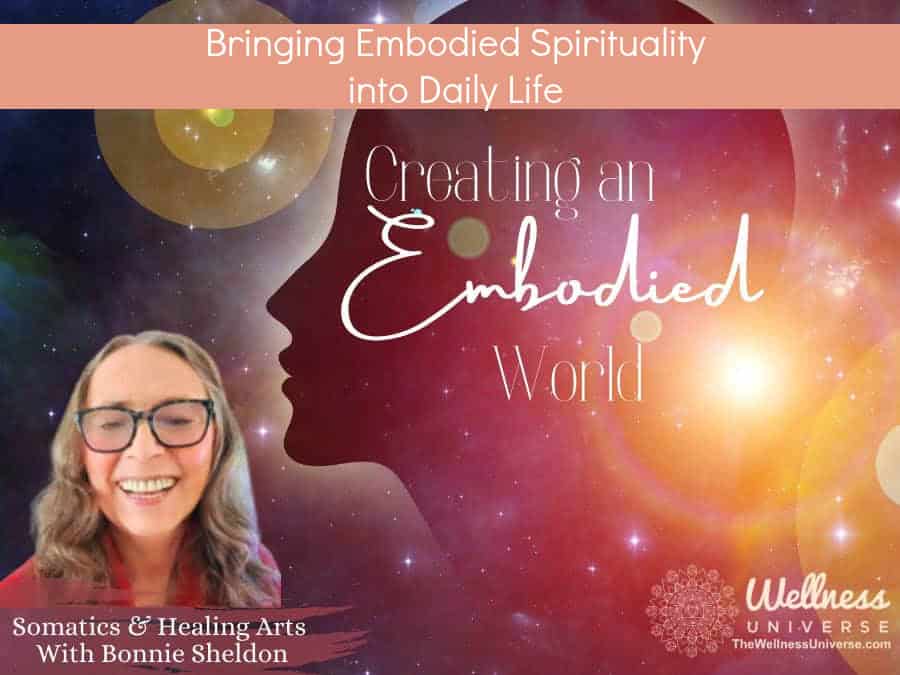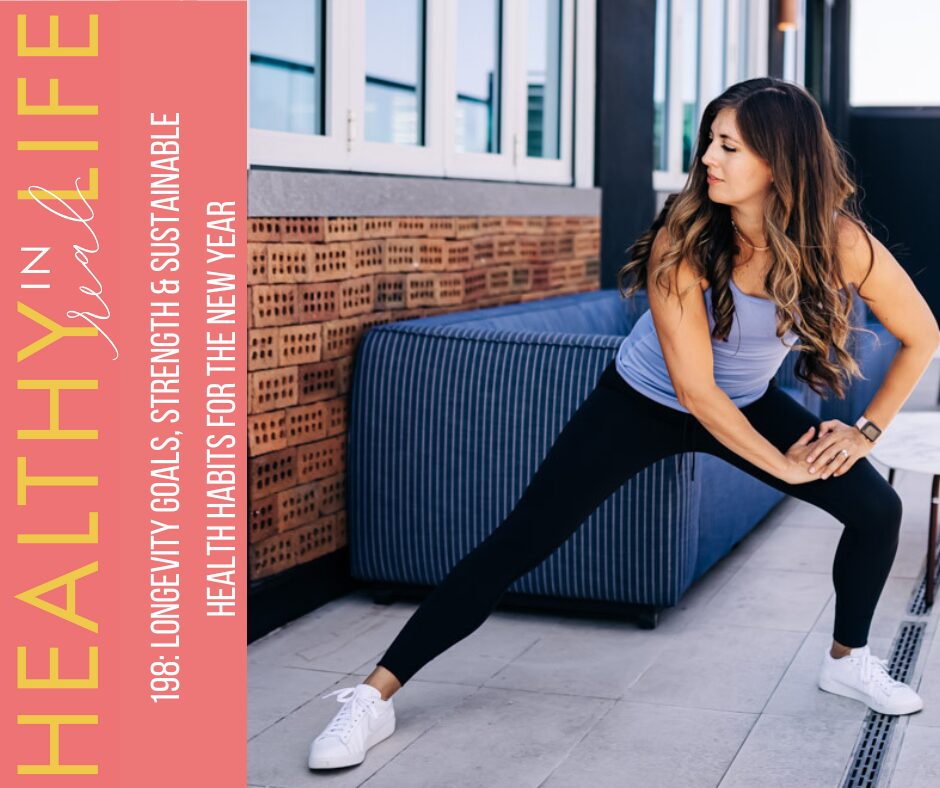Embodied spirituality in daily life is a journey that leads to a profound sense of fulfillment. It’s about creating spirituality and spiritual practices from the building blocks of ordinary, physical life. It’s the practice of shaping a physical life that mirrors the core values of your spiritual life, such as compassion, kindness, and mindfulness.
Embodied spirituality grapples with the simple yet profound question: how should we live? It offers us guidelines to discover authenticity in our activities so they align with our values and life purpose.
I have found that selecting one or several of the recommendations that follow can lead to a more enriching way to structure our paths.
Exploring Personal Spiritual Integration
Morning Reflection, Sending Loving Kindness: Each morning, we wake up with a clean slate, a new day to manifest with a deep sense of awareness and joyful participation. As part of this transformative practice, we can take a few moments while still in bed to awaken from sleep. This allows us to feel the sensation of the bed supporting our body, notice our breathing pattern, or stretch our arms and legs. We then set an intention for the day – to be mindful, to act with kindness, to experience the ordinary with a sense of appreciation – in a way that inspires us towards our spiritual ideals.
Mindful Nourishment: Mealtimes are not just about sustenance. They are perfect for practicing embodied spirituality. Begin by giving thanks for the food and for everyone whose hands have helped carry that food to your table. Eat slowly, chew thoroughly, and pay attention to your body for signals of hunger and fullness.
In this way, a human need suddenly becomes holy in this routine, infusing our daily lives with a sense of reverence and appreciation. It also fosters a sense of connection with the world around us, reminding us that we are part of a larger whole.
Mindful Commuting: Be conscious of your commute, whether you are driving, taking the bus, or walking. If you are driving, fully engage in the act. If you are a passenger, observe the unfolding of the passing realm with equanimity. If you are walking, feel the ground as your feet meet it, step by step. It is a simple shift, but even a seemingly dull routine transfigures into an awareness Practice.
Work as Worship: Approach every job you have as an expression of your spirituality. Treat your work as a sacrament. Whatever your profession or task, bring all your attention and seriousness to it as if you are performing a ritual. Practice active listening whenever you are dealing with your colleagues. Transforming your professional life into a form of spiritual practice can bring you much closer to a fulfilling experience.
Take A Pause: Make pauses in your day at brief intervals. Even in the middle of some occupation, for a minute or two, withdraw from the labor of the hand or brain. Then, close your eyes, and as you sit quietly, breathe calmly and deliberately. Next, look around you and get your bearings with respect to time and place, but remember never to do so without shedding the attitude you have been living with. Be not what you have been doing, but acknowledge what you are in your true nature. Though hidden by your present activity, ‘the Other Self with the clear Eyes of Spiritual Insight, looking out on Life’ is also there.
Night Reflection: Look back on the day. And how it went. Notice where you felt closest to Spirited Life (and not). Doing so lets you learn and deepen to be more ready the next day.
Rest as a Spiritual Practice: Be ready for sleep. Design a bedtime ritual that aligns with your body’s need for rest. Turn down the lights, perhaps meditate or read something edifying, and then surrender with peace into sleep, knowing that rest is not just a physical necessity but a vital part of your spiritual wellness, providing comfort and peace.
Embodied Spirituality in Relationships: Embodied spirituality can occur when we interact with each other. Listen deeply and speak honestly. Let everything you do and say be inspired by the truth of your spiritual ideals, so that your life and relationships reflect your spiritual practice.
Physical Activity as Spiritual Expression: Exercise and other forms of physical activity can be spiritual practices when performed with conscious intention. For example, do yoga, run, or dance in joyful and spiritually expressive ways.
Nature as Spiritual Refuge: Go into nature to attune to earth and heaven and the ebb and flow and rhythms of nature; get outdoors at every opportunity; garden or walk in the park; or simply sit under a tree. Being in nature will reacquaint you with the interconnectedness of all things.
Creative Practices: Paint, sing, dance, dance, write – be creative and explore the Divine through your creativity. Let your creativity be mindfulness in motion – you lose track of who you are in the act of creating.
Service as Spiritual Practice: Find ways to serve others, whether by volunteering your time, lending a helping hand to a neighbor, or offering a nice word to a stranger. Service is a powerful way of walking your talk.
Practice Gratitude: Cultivate an attitude of gratitude. Be aware of the good things around you every day. Reflect on them and give thanks. Pause for a minute or two and notice everything you have been given. This helps instill an attitude of abundance and generosity.
Living with Intention: Choose your actions according to your spiritual values. From your shopping habits and interpersonal connections to how you use your leisure time, let your decision be to lead a spiritual life that lives in your flesh and drives your options. This conscious choice empowers you, giving you a sense of control over your life and the direction it takes.
Allow Yourself the Full Range of Feelings: Feel every feeling and feel it completely. Each feeling has a place in your spirit’s journey. When you feel something, your feeling is complete, and, in the fullest sense, complete in you, as in you, by you, of you.
Continuing Development and Evolving Practice. Always be open to new spiritual practices and perspectives. Read or explore spiritual workshops or communities that expand and challenge you to grow in your practice.
Challenges to Integration
Finding ways to practice embodied spirituality can be challenging; you may be frustrated with specific struggles, feel ashamed or inferior to others, or the very notion makes you anxious. Here are a few tips to help you work through these complexities.
Practice awareness: Accept and acknowledge the complex web of thoughts and emotions as part of your human experience. All spiritual schools affirm this as a critical teaching to deepen your meditation.
Notice Your Self-Talk: Noticing or tracking your self-talk – how you think to yourself about yourself, can aid you by recognizing the context you live in, the emphasis in your narratives, how to connect with those around you, and where you feel vulnerable or uncomfortable.
Recognize the Obstacles: What’s stopping you from practicing regular meditation? Do you feel there isn’t enough time, you’re too easily distracted, or is meditation not for you? Notice where you are stuck.
Pay attention to yourself and your inner state: Be aware of your thoughts, feelings, and bodily sensations to become sensitive to your spiritual needs and discern how these needs can be satisfied.
Practice Mindfulness: This is a crucial loop. Practice mindfulness, whether it is meditation, mindful walking, or simply being present and aware of your experience while doing whatever it is (your discursive carries on while watching your breath but responds to signals from your awareness without taking charge of the show).
Ask for help: Let yourself be mentored by spiritual teachers or guides who have experienced the hard nights and made it to the Light.
Cultivate a Ritual: Create a practice that incorporates embodied spirituality. This can be anything from yoga or tai chi to another form of mindful movement, but it must be done regularly. Have the courage to create your own rituals or spiritual habits that reflect your inner being if that feels like a better path – a pre-set ritual or thousand-year practice like yoga may not be right for you.
Be Tender with Yourself: You become what you eat, metaphorically. Take the proper amount of time, and know that progress is a project. Have the compassion toward yourself that you would have toward others.
Adapt and customize your spiritual practice to fit your unique circumstances: Enrich your daily rituals with actions that nurture resilience and scale back when needed. Prepare for moments of reflection, vocal affirmations, new habits, and pursuits that resonate more deeply with your life’s rhythm. Embrace adaptability and be realistic about your companions on this journey; all you need is already within you.
Find Ways to Embody Your Practice in Daily Life: Cooking, sweeping, digging, shoveling, painting the house, and other daily activities are opportunities for embodied practices.
Stay Connected: Remain part of your community, be it physical or virtual – this can offer companionship or feeling the same thing together.
Riff and Reflect: Step back from your practice regularly and think about what’s going on and what, if anything, needs tweaking. What works for them might not work for you – or vice versa.
One of the most common problems people face when getting things done involves maintaining motivation when things get tough.
There are several things you can do to keep yourself motivated:
Have Clear Goals: Define your goals and what you want to accomplish with your embodied spirituality practice. Clear goals provide direction and purpose.
Find Your ‘Why’: Identify the deeper motivations for your practice. Recalling your initial motives can reignite your impulse and commitment.
Celebrate Small Wins: Enjoy acknowledging your small advances, such as ‘I enjoyed my walk in the woods today. Great.’ This will boost your confidence and motivation.
Find a Spiritual Community: Sharing your process with others will naturally bring accountability and encouragement. A group or practice partner is ideal.
Vary Your Practice: Try practicing something differently or introducing new ways to keep things interesting, helping to prevent boredom and dropout.
Think about the Benefits: Regularly take stock of the changes that have resulted from practicing meditation for the better in your life, reinforcing the benefits of your efforts.
Seek Inspiration: Read books, listen to talks, or consume something that inspires you. Sometimes, this can help give you the motivation to get moving.
Practice self-compassion: React to your failures in a kind and gentle manner. Research shows that practicing self-compassion can help you recover more quickly so that you stay motivated to continue working.
Adjust Expectations: Understand that difficulties are a regular part of recovery, and the best thing to do is to stay as realistic as possible about what you can (and cannot) achieve.
Finally, visualize yourself overcoming the obstacles and accomplishing your goals. This mental rehearsal will increase your belief that you can make it happen.
Remember, motivation fluctuates; that’s part of being fully human, so take small steps; even a nano step forward every so often is enough, and know that the ripples of your Buddhism are emanating into the world as long as you keep trying.
This is how you can develop resilience and harness embodied spirituality for your life – even if it sometimes feels like an uphill climb. As the ancient spiritualist Mengzi once said, the journey is often just as valuable as the goal.
Embodied spirituality in daily life is about integrating spiritual practices – a spirituality that can permeate the ordinary and fill our daily walks, relationships, meals, work, and beds with the sweet fragrance of the spirit, opening to the fullness of an embraced sense that all things are interconnected. In these acts, the wholeness of a human being, of life, can be understood as holy because it is divine.
Connect with Bonnie on The Wellness Universe.
All information, content, and material are for informational purposes only and are not intended to serve as a substitute for the consultation, diagnosis, and/or medical treatment of a qualified physician or healthcare provider. The information supplied through or on this page, or by any representative or agent of The Wellness Universe, is for informational purposes only and does not constitute medical, legal, or other professional advice. Health-related information provided through this website is not a substitute for medical advice and should not be used to diagnose or treat health problems or to prescribe any medical devices or other remedies. The Wellness Universe reserves the right to remove, edit, move, or close any content item for any reason, including, but not limited to, comments that are in violation of the laws and regulations formed pursuant to the Federal Food, Drug, and Cosmetic Act. None of the posts and articles on The Wellness Universe page may be reprinted without express written permission.
The Purpose Evolution
An online series with practical tools and tips focused on personal growth, purpose development, the Akashic Records, self, and DNA healing.
Catch the replay – https://bit.ly/PurposeEvolution
See how our self-care books are helping thousands of people around the world. Digital and paperback books are available now.
Connect to the people that help you live your best life: The Wellness Universe

Bonnie Sheldon, an EFT Master Trainer and Somatics expert and guides professionals in achieving stress relief and mindfulness through body-mind integration. Her programs promote self-care, ensuring workplace wellness and success without sacrificing personal well-being or relationships.
Post Views: 1
Publisher: Source link






